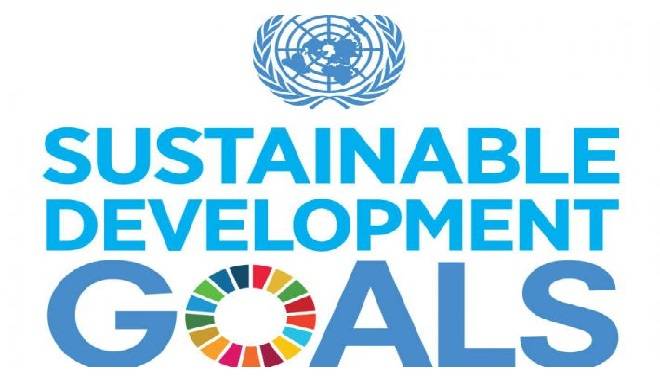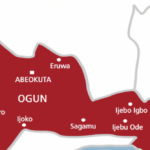One of the most significant factors in the attainment of sustainable growth and development has to do with how well the various communities and countries are able to deal with poverty. Poverty can hinder development by destroying the environmental basis of human development. In its well-studied vicious cycle, a poor community for example can go deeper and deeper into poverty unless it is supported with well-targeted interventions. Development involving production of goods can also promote poverty if it is pursued without consideration for those who would inevitably be excluded from the benefits of the production process. Poverty is thus an endemic phenomenon which deserves to be fought and overcome.
The general principle commonly canvassed is poverty reduction. This would suggest as some people have argued, that poverty would always be around and communities can only work to reduce it. On the other hand it has been argued that the concept connotes a procedure which ultimately could in a progressive manner, eliminate poverty in various communities. If we accept the latter as reasonable, poverty reduction as is frequently presented today must be central to governance both in terms of developing policy instruments and implementing the policies.
The capitalist economy that has dominated the world for many centuries suggests that growth and development are simply a factor of how much production of consumable, essentials as well as luxury goods is made. And really, it is difficult to fault this in history as basic economics show undeniably, that profits grow when costs are cut by scaling up production.
The capitalist economy has however been a concern in particular since the United Nations Conference of 1972 in Stockholm. While some argued that development should be tempered to ensure that the environment is not wholly destroyed, others believed that simple Cost-Benefit Analysis favours unrestrained industrial development. Meanwhile, the poor are in most cases, completely dependent on the natural environment that “development” is destroying. The profits that the capitalist is after would also come when local people have the wherewithal to buy the products.
The arguments above generated intense discussions particularly after the Stockholm Conference. The controversy somehow fueled the need for a committee to have a more detail look at development and environment. This in part, led to the establishment of the World Commission on the Environment which was chaired by Gro Harlem Brundtland, a former Prime Minister of Norway. By 1987, the Commission had concluded its assignment with a report titled Our Common future. The report was well-received because of its perceived clear understanding of what sustainable development should be. This report is now a basis for such United Nations interventions as the Millennium Development Goals (MDGs) and its successor- Sustainable Development Goals (SDGs). In these two global development instruments under the United Nations, considerable attention is given directly to poverty reduction as a target, and indirectly, on such issues such as reduction of deforestation and provision of potable water that can protect the poor and pull them out of poverty. Common lists of goals and targets are developed to facilitate a comparable implementation and common assessment as well as understanding of the MDGs and SDGs at global, regional and national levels.
What is poverty? Poverty is a multidimensional social phenomenon. The definitions that have been advanced for poverty and its causes vary by gender, age, culture, and other social and economic contexts. The human rights approach underlines the multidimensional nature of poverty, describing it in terms of a range of interrelated and mutually reinforcing lacks, and drawing attention to the stigma, discrimination, insecurity and social exclusion associated with poverty. As strong as familial and cultural ties are in many cultures especially in Africa and Nigeria, the really poor person does not have a relation and can be completely neglected by the society that produced him or her.
Poverty reduction has been unanimously endorsed by the international community as the overarching goal of development. Less agreement appears to exist on what this poverty actually is and how it should be measured.
In the last few decades, Nigeria like most other countries have embraced the MDGs first, and now the SDGs. The primary objective of these goals is to facilitate the rapid development of all the critical sectors of the economies of the various countries subscribing to them.
The idea to eradicate or reduce global poverty has been on since the mid-twentieth century. This reflects in the Universal Declaration of Human Rights (UDHR); the Development Decade of the 1960s; the many UN summits of the second half of the twentieth century; and, books, reports and associated advocacy exercises on the issue. With the exception of the UDHR, none of these moved much beyond the ‘aspirational’ stage.
The Millennium Development Goals (MDGs) were the eight international development goals which were set to be achieved in 2015. It was established following the Millennium Summit of the United Nations in 2000 in consonance with the United Nations Millennium Declaration.
In the September 2005 UN World Summit after many years of shaping the MDGs, the governments of most countries committed to align the international development system’s core goals with their core processes, which take place at the country level.
The MDGs regime ended in 2015 but the performances of the country as reported by UNDP in 2015 calls for more actions. Nigeria’s performances have been between appreciable to strong progress although the goals were not met. It would seem that rather than meeting the targets we are getting farther away from many of them. The SDGs officially known as “Transforming our world: the 2030 Agenda for Sustainable Development” were negotiated in September 2015 to be a successor to MDGs. They are made up of 17 Goals with 169 targets.
The Sustainable Development Goals (SDGs) are intended to be universal in the sense of embodying a universally shared common global vision of progress towards a safe, just and sustainable space for all human beings to thrive on the planet.
They reflect the moral principles that no-one and no country should be left behind, and that everyone and every country should be regarded as having a common responsibility for playing their part in delivering the global vision.
Very clearly, there is a need for urgent action on poverty reduction in Nigeria. With all the social and economic pressure around us today the challenge is really daunting. We must take serious action otherwise, the level of poverty would get worse and our sustainable development aspirations compromised.
The SDGs offer us great hope. It is noteworthy that the SDG is far more ambitious than the MDGs on this issue. The goal is to end poverty in all its forms everywhere. This is really an opportunity for our country to move forward. We must be alert to the various implementation opportunities that are available locally and within the UN system to “end poverty” in the country. Bilateral relationships can also be sourced in the pursuit of ending poverty in our land. The government must look again at our various extant policy documents and sieve out those elements that can help in the push to end poverty.
To this end, I am calling on all MDAs at states and national level to key into the Sustainable Development Goals in their annual budgets so that Nigeria can achieve at least some of the goals and targets especially on food security, education, health, water and sanitation among others. I am also calling on the Office of the Senior Special Assistant to the President on SDGs to give us comprehensive progress reports from 2015 on where we are and how we intend to achieve our goals and targets before 2030 the deadline for the SDGs.
Professor Idris is Dean, Faculty of Environmental Science, Nasarawa State University, Keffi




